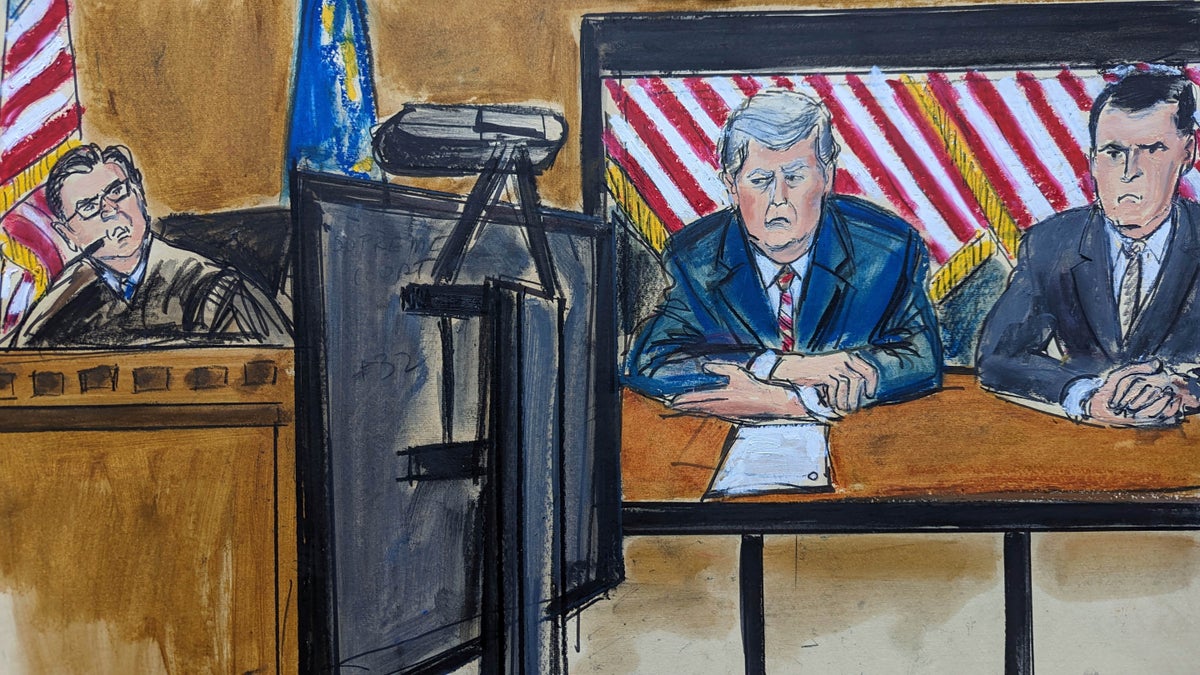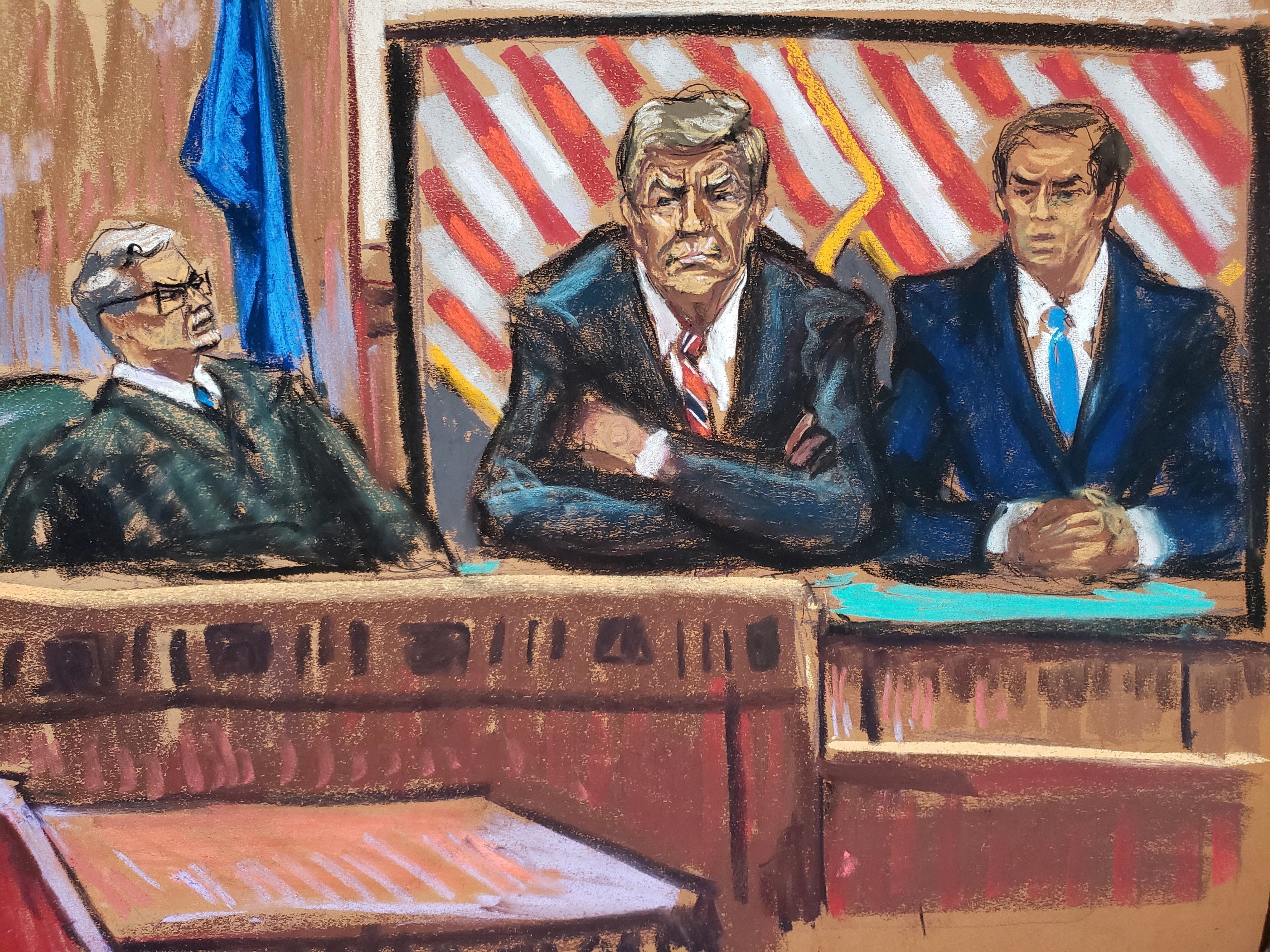
Hours after he was criminally charged with 34 courts of falsifying business records in New York City, Donald Trump retreated to his Mar-a-Lago resort to lambast the “Trump-hating” judge presiding over his case in Manhattan criminal court.
Now, lawyers for the former president and frontrunner for the 2024 Republican presidential nomination are pressing Judge Juan Merchan to recuse himself from the case, pointing to his daughter’s political consulting work and small-dollar campaign donations.
A court filing made public on 2 June – days after Mr Trump’s virtual court appearance for a hearing to abide by a court order prohibiting his sharing of evidence in the case – also took issue with Mr Merchan’s role in a case involving convicted former Trump Organization CFO Allen Weisselberg, who pleaded guilty to 15 tax violations in what prosecutors called a years-long fraud scheme.
In April, Mr Trump was criminally charged in connection with repayments to his then-lawyer Michael Cohen in an alleged hush-money scheme to prevent the release of potentially damaging stories about Mr Trump and his alleged affairs.
Mr Trump has pleaded not guilty.
Attorneys for Mr Trump argued that the judge’s daughter’s political consulting work could be seen as an actual or perceived conflict of interest for the judge, and his potential role in the case could “result in a financial benefit” for his daughter who “stands to profit from negative rulings or a conviction” against Mr Trump.
Mr Trump’s lawyers also want Mr Merchan to “put on the record relevant information surrounding what appear to be certain political contributions.” Mr Merchan appears to have donated $15 to President Joe Biden’s campaign and $20 to two advocacy groups in 2020, according to federal campaign finance records.
The former president also is seeking the case to move out of Manhattan disstrict court and into federal court – a hearing on that request is scheduled for 27 June.

Mr Trump, Mr Cohen and the former owner of the National Enquirer David Pecker allegedly worked in concert to “identify, purchase, and bury negative information about him and boost his electoral prospects” leading up to the 2016 presidential election, according to prosecutors.
The alleged payments were used to cover up sex scandals as part of a “conspiracy to undermine the integrity of the 2016 election,” according to prosecutors.
Hours after he first appeared in criminal court on 4 April, and after the judge warned him against making any incendiary remarks or personal attacks, Mr Trump immediately flew back to his Mar-a-Lago resort in Florida, where he went on to do just that.
“I have a Trump-hating judge, with a Trump-hating wife and family,” he said that night.
He called Manhattan District Attorney Alvin Bragg “a local failed district attorney” and a “criminal” who should resign.
Prosecutors have argued that a protective order was necessary to keep Mr Trump – who has repeatedly lashed out at the judge and prosecutors – from broadcasting information about the case before a jury has been selected and a trial begins.
Last month, the former president made his first appearance in court since his indictment to hear the terms of the order.
Mr Trump, who continues to rely on his online bully pulpit with an audience of obedient followers to broadcast veiled threats and insults at his perceived enemies, is prohibited from disseminating “covered materials” on social media platforms “including, but not limited, to Truth Social, Facebook, Instagram, WhatsApp, Twitter, Snapchat, or YouTube, without prior approval from the court,” according to a protective order issued last month.
A trial is set to begin on 25 March 2024 – days after voting begins in presidential primaries.







